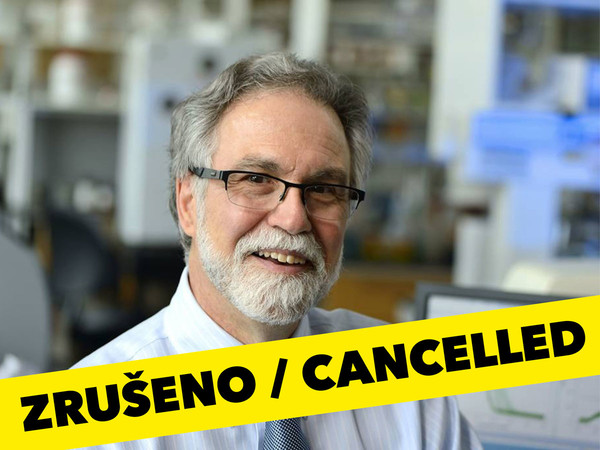In the second week of June, Gregg Leonard Semenza, a prominent world figure in science and medicine, is visiting Olomouc. Semenza, Professor at Johns Hopkins University, received the 2019 Nobel Prize in Physiology and Medicine for his discovery of the mechanism by which cells respond to changes in oxygen levels. He will talk about this discovery and its use in the treatment of many of serious diseases during his lecture on Friday, 9 June, at 2 pm at the UP Faculty of Medicine and Dentistry (FMD).
Update (June 7): The lecture of G. L. Semenza has been cancelled
FMD management invites all those interested in medicine and related fields to attend the lecture of the Nobel laureate, which will take place in the large lecture hall of the UP Theoretical Institutes at FMD. The talk will be delivered in English.
“We are immensely pleased to welcome such a renowned personality as Prof Semenza to our faculty, it is truly a great honour for us. I believe that our medical students and colleagues from our institutes and departments, as well as other interested parties, will not miss the opportunity to meet a world-class scientist and physician,” said dean emeritus Josef Zadražil, who was in office as the FMD dean when he gladly accepted and supported the offer to arrange the visit of the Nobel Prize winner.
"The idea to arrange his visit at the faculty came from Josef T. Prchal, professor of internal medicine, genetics, and pathology at the University of Utah and recipient of an honorary doctorate from Palacký University in 2011, who is a close collaborator of Prof Semenza, and two scientific groups at our faculty at the UP FMD Department of Biology, the Department of Hemato-oncology, and University Hospital Olomouc,” added Vladimír Divoký, head of the FMD Department of Biology, who knows both American scientists from his studies at the University of Alabama at Birmingham and from working on a joint, time-consuming, and experimentally demanding research project.
Vladimír Divoký and Milan Raška, FMD Vice-Dean for International Relations, will accompany Prof Semenza and his wife during their stay in Olomouc. In addition to the lecture at the faculty and Olomouc sightseeing, the programme also includes meetings with representatives of the city, Palacký University and University Hospital Olomouc, as well as with scientists from the medical faculty.
Gregg L. Semenza’s visit to Olomouc and Palacký University will conclude his trip to the Czech Republic. Prior to Olomouc, he is going to be a keynote speaker at the 57th Annual Conference of the European Society for Clinical Investigation in Prague and receive an honorary doctorate in medical sciences at Charles University for his significant contribution to world science in the field of oxygen availability in the cells.
Gregg Leonard Semenza is Professor at the School of Medicine, Johns Hopkins University, Baltimore, USA, and founder of the Vascular Programme at the Institute for Cell Engineering and the Armstrong Research Center for Oxygen Biology, among others. In 2019, together with William G. Kaelin Jr. and Peter J. Ratcliffe, he received the Nobel Prize in Physiology and Medicine for their ground-breaking discovery of one of life’s most important adaptive processes – the molecular mechanism by which cells respond to changing oxygen levels. This mechanism is involved in the development of many serious diseases, such as cancer, diabetes, and cardiovascular diseases, and its uncovering has far-reaching implications in understanding and treating these conditions. In particular, Prof Semenza discovered the hypoxia-inducible factor 1 (HIF-1) protein, which binds to a specific DNA segment of thousands of genes whose expression is used by the cell to respond to oxygen deprivation in the microenvironment or at the whole body level. Prof Semenza’s current research interests include the molecular mechanisms of oxygen homeostasis, the role of HIF-1 in tumour progression, and the development of HIF inhibitors for the treatment of cancer.
